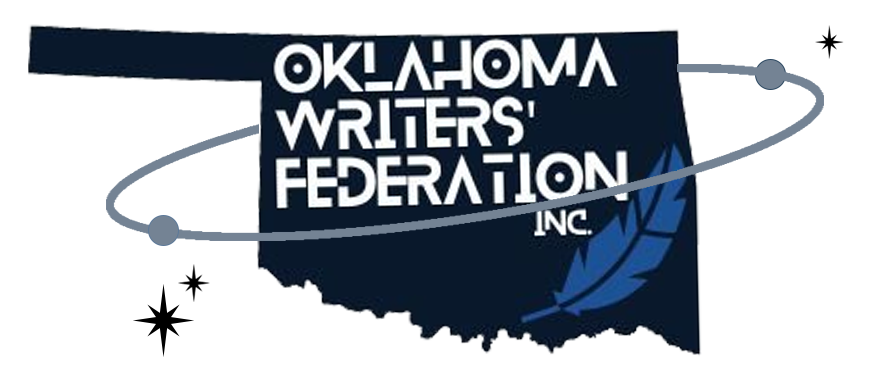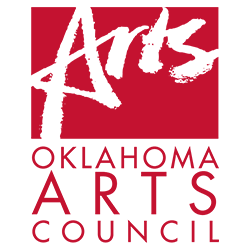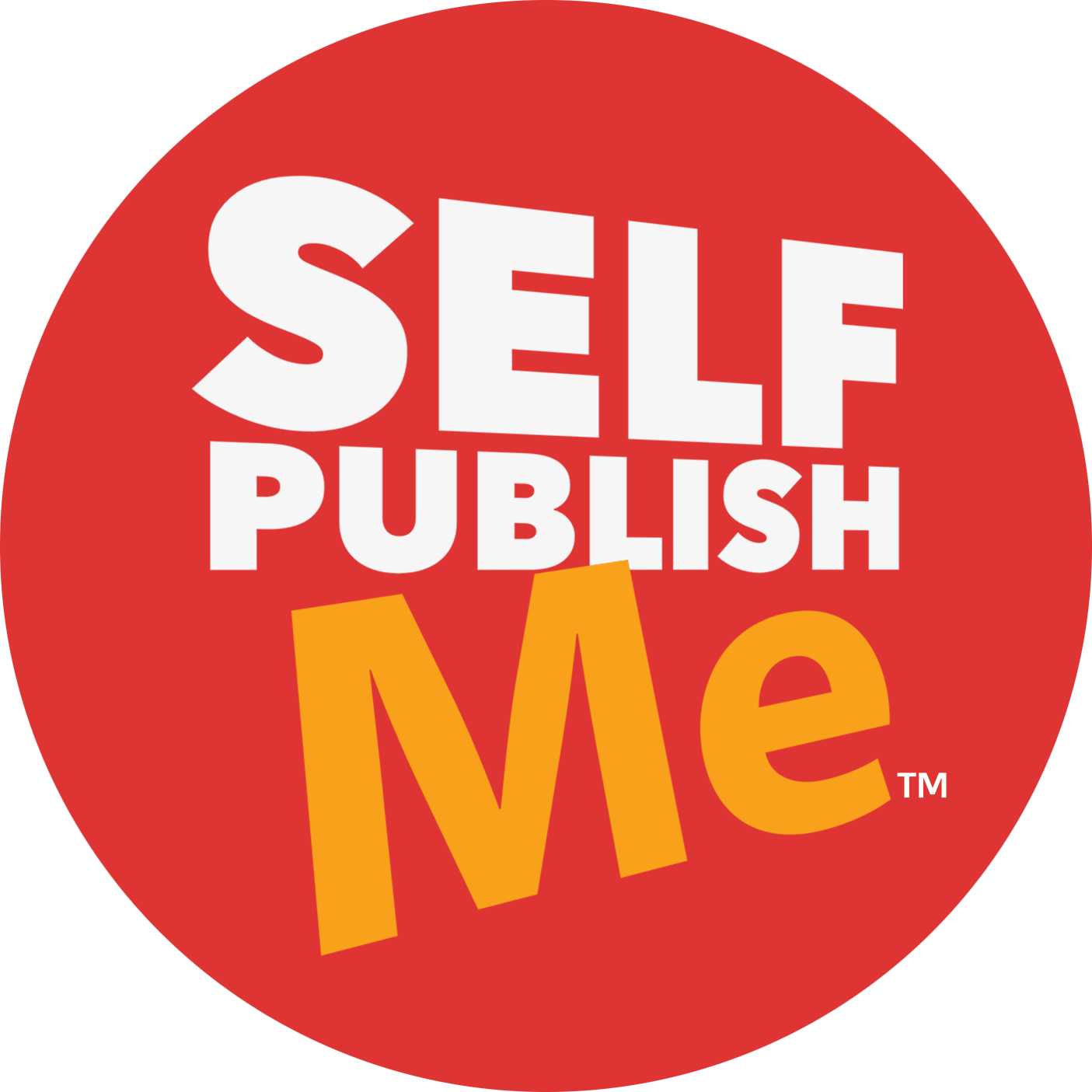Sounding the Gong: How to Craft an Ending that Reverberates
OWFI October Virtual Workshop Transcript
October 12, 2017
Sabrina Fish
[6:25 PM]
Hello everyone. As you arrive, please do take a moment to look over the Chat Room Etiquette rules above. And welcome!
Jennifer McMurrain
[6:32 PM]
Excited for this chat! Hope my battery lasts on my phone since I'm attending this chat and a meeting. Shhhh... don't tell the others in my meeting. :wink:
Sabrina Fish
[6:37 PM]
Welcome everyone to our 2nd OWFI Virtual Chat! Feel free to socialize with each other until it's time to start. When I introduce our speaker that will be the signal to rest your fingers until he opens the floor for questions.
[6:38]
How are you all? Is everyone here planning to enter the contest this year?
Jennifer McMurrain
[6:38 PM]
You betcha!
Julia Mozingo
[6:39 PM]
I'm finishing dinner so my hands will be free for the chat.
Ruth Kizer
[6:39 PM]
joined vw_benmontgomery.
Sabrina Fish
[6:45 PM]
Will you be entering every category this year, Jennifer?
Jennifer McMurrain
[6:47 PM]
Lol every one I'm eligible for :wink:
Sabrina Fish
[6:47 PM]
You're a machine!
Jennifer McMurrain
[6:49 PM]
Honestly who knows what I'll enter
Sabrina Fish
[6:51 PM]
Good luck!
Jennifer McMurrain
[6:51 PM]
Thanks!
Sabrina Fish
[6:55 PM]
5 minute warning!
[6:58]
Welcome, OWFI, to our 2nd Virtual Workshop. I'm so glad you chose to spend an hour of your evening with us on further developing your craft. Our speaker tonight was part of our past conference and was such an interesting speaker that I just knew he'd be an asset for this new idea of virtual workshops I wanted to impletemnt
[6:59]
Thank you, Ben for trying something new with me!
[6:59]
Ben Montgomery is an enterprise reporter for the Tampa Bay Times and founder of the narrative journalism website Gangrey.com. He's also author of the New York Times bestselling Grandma Gatewood's Walk: The Inspiring Story of the Woman Who Saved the Appalachian Trail and The Leper Spy: The Story of an Unlikely Hero of World War II, both from Chicago Review Press.
Montgomery grew up in Oklahoma and studied journalism at Arkansas Tech University, where he played defensive back for the football team the Wonder Boys. He worked for the Courier in Russellville, Arkansas; the Standard-Times in San Angelo, Texas; the Times Herald-Record in New York's Hudson River Valley; and the Tampa Tribune before joining the Times in 2006.
In 2010, he was a finalist for the Pulitzer Prize in local reporting and won the Dart Award and Casey Medal for a series called "For Their Own Good," about abuse at Florida's oldest reform school. He lives in Tampa with his wife Jennifer and three children.
Ben Montgomery
[6:59 PM]
I'm soo nervous.
[6:59]
:slightly_smiling_face:
Sabrina Fish
[6:59 PM]
So without further ado, everyone welcome Ben Montgomery.
Ben Montgomery
[6:59 PM]
Hey, everybody!
[7:00]
This is a first, teaching via Slack, so I hope you'll cut me some ... slack.
[7:00]
er. Okay. Endings.
[7:00]
First, a quiz. I'm going to throw out an ending, and y'all chime in if you can identify what it's from.
[7:00]
Ready?
Sabrina Fish
[7:01 PM]
:+1:
Ruth Kizer
[7:01 PM]
ready
Ben Montgomery
[7:01 PM]
Billy and the rest wandered out onto the shady street. The trees were leafing out. There was nothing going on out there, no traffic of any kind. There was only one vehicle, an abandoned wagon drawn by two horses. The wagon was green and coffin-shaped.
Birds were talking.
One bird said to Billy Pilgrim, “Poo-tee-weet?”
[7:01]
(no googling!)
Staci Mauney
[7:01 PM]
Kurt Vonnegut Slaughterhouse Five
Ben Montgomery
[7:01 PM]
Ding ding. Nice.
[7:02]
Next.
[7:02]
Don’t ever tell anybody anything. If you do, you start missing everybody.
[7:02]
??
[7:03]
Salinger, The Catcher in the Rye
Jennifer Sneed
[7:03 PM]
Catcher in the Rye
Sabrina Fish
[7:03 PM]
It's been awhile since I read that one.
Ben Montgomery
[7:03 PM]
I'll slow down. Good job, Jennifer.
[7:03]
Next.
[7:03]
“And nice to have seen you, Sue. Good luck,” he called after her as she disappeared down the path, a pretty girl in a hurry, her smooth hair swinging, shining – just such a young woman as Nancy might have been. Then, starting home, he walked toward the trees, and under them, leaving behind him the big sky, the whisper of wind voices in the wind-bent wheat.
[7:04]
Anybody?
[7:05]
In Cold Blood, Capote
[7:05]
A couple more.
[7:05]
"He gazed up at the enormous face. Forty years it had taken him to learn what kind of smile was hidden beneath the dark moustache. O cruel, needless misunderstanding! O stubborn, self-willed exile from the loving breast! Two gin-scented tears trickled down the sides of his nose. But it was all right, everything was all right, the struggle was finished. He had won the victory over himself. He loved Big Brother."
[7:05]
Easy one.
Jennifer Sneed
[7:05 PM]
1984
Ben Montgomery
[7:06 PM]
Yep!
[7:06]
Harder one now.
[7:06]
“I might go to Canada eventually, but I think I’ll stop along the Columbia on the way. I’d like to check around Portland and Hood River and The Dalles to see if there’s any of the guys I used to know back in the village who haven’t drunk themselves goofy. I’d like to see what they’ve been doing since the government tried to buy their right to be Indians. I’ve even heard that some of the tribe have took to building their old ramshackle wood scaffolding all over that big million-dollar hydroelectric dam, and are spearing salmon in the spillway. I’d give something to see that. Mostly, I’d just like to look over the country around the gorge again, just to bring some of it clear in my mind again.
“I been away a long time.”
[7:07]
Guesses?
[7:07]
One Flew Over the Cuckoo’s Nest
[7:08]
Thinking about this today, I got curious about which endings I could actually remember.
[7:08]
Not the words, necessarily, but the scene, or the thought, or the last image.
[7:09]
I was surprised how many books that are considered classics that I have read that I couldn't recall the last few graphs.
[7:09]
Chime in here. Are there famous books you can think of right now that you can't recall the last lines? Or how it ends, even generally?
Sabrina Fish
[7:10 PM]
I come more to remembering a feeling over a word for word ending. I LOVED To Kill a Mockingbird, but can't remember the last lines
Ben Montgomery
[7:10 PM]
What about Grapes of Wrath?
[7:11]
One of the most powerful, memorable endings in American literature -- hell, literature.
Jennifer Sneed
[7:11 PM]
Doesn't Rose of Sharon feed the black man?
Ben Montgomery
[7:11 PM]
Was he black?
[7:11]
Yes, Rose of Sharon nurses a dying man.
Jennifer Sneed
[7:11 PM]
I think so. I could be wrong (or I could remember this from a staged play I saw).
Ben Montgomery
[7:12 PM]
Which is interesting for a few reasons. One, it's an anticlimax. Right?
[7:12]
RoS is pregnant, and in labor, and we're expecting the birth of a baby.
[7:12]
Instead, she voluntarily nurses a starving man.
[7:13]
Which is resounding, because it's Steinbeck's point. It's the confluence of everything he's trying to say in Grapes about socialism, community, empathy, struggle.
[7:13]
All tied up in one powerful scene.
[7:14]
One ending that I actually know in my head, I'd like to talk about and try to pick apart.
[7:14]
First, I hated The Great Gatsby in high school.
Sabrina Fish
[7:14 PM]
Oh, that was one of my faves in high school!
Ben Montgomery
[7:14 PM]
Loser!
[7:15]
J/k.
[7:15]
I never would have expected the book would become one of my favorites. And there's a story.
[7:15]
My wife's dad was giving us a Cadillac and I had to fly to Oklahoma to drive it back.
[7:16]
I hit the B&N for a book on tape and saw Gatsby. This was about eight years ago. Thought I'd give it another try.
[7:16]
Gatsby was read by Tim Robbins, one of the best voices in Hollywood.
[7:16]
Changed completely how I viewed that book.
[7:17]
And near the end of the drive, I listened to the ending about ten times over. It struck me as one of the most beautiful paragraphs in literature.
[7:17]
Here it is.
[7:17]
Gatsby believed in the green light, the orgastic future that year by year recedes before us. It eluded us then, but that's no matter—tomorrow we will run faster, stretch out our arms farther. . . . And one fine morning——
So we beat on, boats against the current, borne back ceaselessly into the past.
[7:17]
Does anyone hate this ending?
[7:17]
Chime in.
[7:18]
Does anyone love it?
Sabrina Fish
[7:18 PM]
It was so sad, but that last line is so powerful and I believe I still have it written in an old notebook somewhere.
Ben Montgomery
[7:19 PM]
What’s good about that last line?
Jack Burgos
[7:19 PM]
I love it, personally. I feel like the feeling of being trapped in an endless grind towards some unknown resonates with a lot of people.
Ben Montgomery
[7:20 PM]
Exactly.
[7:20]
A few things strike me about it.
[7:20]
It yearns.
[7:20]
Right? I mean, it wants to be hopeful. The word "believes," the posture, the looking.
[7:21]
The word "orgastic."
[7:21]
That's not a word.
Sabrina Fish
[7:21 PM]
For me, it always read as we never give up, even when we can't see that we'll ever get out or win, we have to keep trying and have hope.
Ben Montgomery
[7:21 PM]
Fitz made it up because he liked the way it sound, and what it suggested.
[7:22]
The word "future"
[7:22]
But the line is a yo-yo.
[7:22]
He's looking out, believing, but the future recedes ... before us.
[7:23]
Eluded us then. We missed it. He's pointing to the book, but promising more.
[7:23]
Tomorrow. There is always tomorrow, but he's reminding us that there's tomorrow for only some of us. Not for Jay Gatsby. Right?
[7:24]
The graph also harkens back to the end of Chapter 1, which I don't have with me.
[7:24]
But Fitz writes something very similar about stretching out arms.
[7:24]
So he's pointing forward, then reeling back in, then pointing forward.
[7:25]
Eternally optimistic, eternally fatalistic.
[7:25]
The other thing it does:
[7:25]
Says exactly what the book says.
[7:25]
But with an image.
[7:25]
It'
[7:25]
It's the portrait of America at the end of the 1920s.
[7:26]
Disenchanted, optimistic, fatalistic.
[7:26]
A few other things: Notice anything about the rhythm?
[7:27]
(This is like English class!)
[7:27]
It's almost iambic pentameter, right?
[7:28]
There's also some useful alliteration with the B words.
[7:28]
boats, beat, borne back
[7:28]
Then sssss with ceaselessly and passsst.
[7:29]
Read aloud, it's quite beautiful. Take a second and do that.
[7:29]
OKAY.
[7:30]
Any other thoughts on Gatsby before we move on? Feel free to pipe up.
[7:30]
Before I offer some tips on endings, let's talk about what not to do.
[7:31]
OPEN FLOOR. What's the worst ending you remember? Books, stories, movies, whatever.
Staci Mauney
[7:31 PM]
The Sopranos
Ben Montgomery
[7:32 PM]
Hahah ... yessss. Why?
Jennifer Sneed
[7:32 PM]
Blood Meridian by McCarthy. I still don't know what it means, though I know it's a masterpiece.
Staci Mauney
[7:32 PM]
Because I like closure. And it seemed lazy.
Jack Burgos
[7:32 PM]
Star Trek: Enterprise
Sabrina Fish
[7:32 PM]
The end of the Divergent series(books).
Ben Montgomery
[7:33 PM]
You have it handy, Jennifer?
Jennifer Sneed
[7:33 PM]
It's on the shelf. I'll go get it.
Ben Montgomery
[7:34 PM]
Anybody remember Alice's Adventures in Wonderland?
Jack Burgos
[7:35 PM]
It's been a while, but a little!
Ben Montgomery
[7:35 PM]
"Oh, what a curious dream I had." Something like that?
Sabrina Fish
[7:35 PM]
Alice returns home
[7:35]
oh yeah
Ben Montgomery
[7:35 PM]
IT WAS ALL A DREAM!
Sabrina Fish
[7:35 PM]
I'm remembering the Tim Burton movie
Ben Montgomery
[7:35 PM]
So lazy!
Jennifer Sneed
[7:35 PM]
It's not on the shelf I thought it was on - too many books.
Jack Burgos
[7:36 PM]
That was the problem with Star Trek: Enterprise. IT WAS ALL A HOLODECK PROGRAM!
Ben Montgomery
[7:36 PM]
What about Harry Potter and the Deathy Hallows?
[7:36]
Haha. Yes!
[7:36]
"All was well." Good job J.K.!
[7:37]
I think it's important to identify the endings that we don't like, honestly, to avoid making those mistakes. An ending should change the reader in a way, IMO, send them out into the world with a new outlook.
[7:37]
And "A good time was had by all" does not cut it for me.
Shirley Rodgers
[7:37 PM]
Alice in Wonderland, The Wizard of Oz...similar endings.
Ben Montgomery
[7:38 PM]
^^Exactly. And enterprise. It was all a dream.
[7:38]
I've just finished what many have called the best American novel you've never read.
[7:38]
Stoner, by John Williams.
Sabrina Fish
[7:39 PM]
or ever heard of...
Ben Montgomery
[7:39 PM]
I sobbed at the end. Quick plot: It's the chronological telling of the mostly hum-drum life of a man who becomes an instructor at a University, teaches literature.
[7:40]
His crowning achievement is not much of an achievement. He publishes a book. It is barely noticed.
[7:40]
Spoiler alert: I'm going to share the ending because I'd like to talk about it.
[7:41]
Setting: Stoner, the professor, is up in years and on his deathbed.
[7:41]
His heard turned. His bedside table was piled with books that he had not touched for a long time. He let his hand play over them for a moment; he marveled at the thinness of the fingers, at the intricate articulation of the joints as he flexed them. He felt the strength within them, and let them pull a book from the jumble on the tabletop. It was his own book that he sought, and when the hand held it he smiled at the familiar red cover that had for a long time been faded and scuffed.
It hardly mattered to him that the book was forgotten and that it served no use; and the question of its worth at any time seemed almost trivial. He did not have the illusion that he would find himself there, in that fading print; and yet, he knew, a small part of him that he could not deny was there.
He opened the book; and as he did so it became not his own. He let his fingers riffle through the pages and felt a tingling, as if those pages were alive. The tingling came through his fingers and coursed through his flesh and bone; he was minutely aware of it, and he waited until it contained him, until the old excitement that was like terror fixed him where he lay. The sunlight, passing his window, shone upon the page, and he could not see what was written there.
The fingers loosened, and the book they had held moved slowly and then swiftly across the still body and fell into the silence of the room.
[7:43]
Good?
[7:43]
Anybody hate it?
[7:43]
(typos mine, if you see any)
Shirley Rodgers
[7:43 PM]
WOW!
Ben Montgomery
[7:44 PM]
I've read this a dozen times today, trying to diagnose what it is that made me literally sob. I settled on a few things.
[7:45]
One: it says with one final scene -- all told in action and images -- exactly what the book is about.
[7:46]
A man's humble quest to publish, and the defining personal glory that lives in that accomplishment.
[7:46]
Two: It's subtly beautiful, this scene. Creates a nice image in the mind's eye. You can see it. No mental hurdles crop up.
[7:47]
Three: Notice how his fingers are not his.
[7:47]
HHe let his hand play ... he marveled at the thinness of the fingers .. the joints ... let them pull a book from the jumble on the tabletop.
[7:48]
The fingers loosened ...
[7:49]
In my mind this is the tangible loss of power for a man who was never willing to take hold himself. It speaks to the entire preceding book.
[7:49]
ONE MORE QUICKY.
[7:49]
My fave ending of all time: Gary Smith, Walking His Life Away: https://www.si.com/vault/2004/07/26/8213310/walking-his-life-away-for-race-walker-albert-heppner-making-the-2004-us-olympic-team-was-allimportantperhaps-in-the-end-too-important#
SI.com
A speed walker's Olympic obsession cost him his life
For race walker Albert Heppner, making the 2004 U.S. Olympic team was all-important—perhaps, in the end, too important
[7:49]
Posting the ending here.
[7:50]
Set up: It's a profile of an olympic hopeful speed walker who kills himself.
[7:50]
Throughout the story, the walker keeps breaking the Cardinal rule of speedwalking: always keep one foot on the ground.
[7:51]
The ending, as he comes unraveled after many failures to achieve his dream of making the Olympics:
[7:51]
A light mist fell. He neared Pine Valley, the gorge 45 minutes west of San Diego that he and the other walkers had hiked down three months earlier. His mother called at 6:50 wondering what had become of him. "Sorry, Ma, the weather's bad, my friend's plane's late," Al lied.
"Please, Al, my cousin's waiting," she protested. "Can't you find someone else to wait for your friend?"
For the first time, she heard an odd ring to his reply. "Uh. . .I'll try," he said. She called again six minutes later. The cellphone, lying near his wallet, rang again and again in his car.
Al began to walk across the bridge. Cars hissed past him on the wet asphalt. Dusk pooled in the gorge below. He stopped not even a third of the way across. He wouldn't need all 450 feet.
Now that the flame was out, the rules made no sense. He looked over the railing. The emptiness went on and on. Both feet left the ground.
Sabrina Fish
[7:52 PM]
:cry:
Ben Montgomery
[7:53 PM]
The power of that last sentence comes from the repetition of that line -- that thought -- throughout the story. Always keep one foot on the ground.
[7:53]
Repetition in endings can be useful. This happens quite often in songwriting, but also poetry.
[7:54]
The Jabberwocky, Lewis Carrol, starts and ends with:
’Twas brillig, and the slithy toves
Did gyre and gimble in the wabe:
All mimsy were the borogoves,
And the mome raths outgrabe.
[7:54]
Death of a Racehorse by W.C. Heinz starts here:
They were going to the post for the sixth race at Jamaica, two year olds, some making their first starts, to go
five and a half furlongs for a purse of four thousand dollars. They were moving slowly down the backstretch
toward the gate, some of them cantering, others walking, and in the press box they had stopped their working or
their kidding to watch, most of them interested in one horse.
"Air Lift," Jim Roach said. "Full brother of Assault."
Assault, who won the triple crown ... making this one too, by Bold Venture, himself a Derby winner, out of
Igual, herself by the great Equipoise ... Great names in the breeding line ... and now the little guy making his
first start, perhaps the start of another great career.
THEN:
They moved the curious back, the rain falling faster now, and they moved the colt over close to a pile of
loose bricks. Gilman had the halter and Catlett had the gun, shaped like a bell with the handle at the top. This
bell he placed, the crowd silent, on the colt's forehead, just between the eyes. The colt stood still and then
Catlett, with the hammer in his other hand, struck the handle of the bell. There was a short, sharp sound and the
colt toppled onto his left side, his eyes staring, his legs straight out, the free legs quivering.
"Aw ----" someone said.
That was all they said. They worked quickly, the two vets removing the broken bones as evidence for the
insurance company, the crowd silently watching. Then the heavens opened, the rain pouring down, the lightning
flashing, and they rushed for the cover of the stables, leaving alone on his side near the pile of bricks, the rain
running off his hide, dead an hour and a quarter after his first start, Air Lift, son of Bold Venture, full brother of
Assault.
[7:56]
So, some TIPS, then your questions.
[7:56]
Know where you’re going.
[7:56]
I try to have my ending in mind when I begin writing. It's not the climax, but the closing scene.
[7:56]
2. Outline, but leave room for creativity.
[7:57]
I always suggest outlining, and this give you a map to your ending. You can see themes surface in an outline and it might help you sound the gong at the end.
[7:57]
3. Think like the movies, then don’t be like the movies.
[7:58]
The cowboy rides into the sunset might be what you want, but think about giving readers a surprise.
[7:58]
4. Write past the ending, then roll it back a few sentences.
[7:58]
I find that I usually overwrite endings, and I’ll peel back over the previous few graphs until I find a better spot to end.
[7:59]
5. READ OUT LOUD.
[7:59]
Listen to yourself. Or have someone else read to you. Does it sound pretty? The first sense we develop as babies is hearing, long before we're born. We know what sounds pretty.
[8:00]
6. Aim to reveal the meaning of everything that came before. It’s okay to use images. Also, scenes. (Like Grapes of Wrath)
[8:01]
7. Does it solve some kind of moral quandary? Or make reveal or moral? Or reiterate your point in a profound way? Those, in my mind, are the best endings.
[8:01]
QUESTIONS? THOUGHTS? IDEAS?
Jack Burgos
[8:03 PM]
I love the idea of writing past the ending then rolling it back. I often have the problem that I don't write enough of an ending.
Jennifer Sneed
[8:05 PM]
I appreciate your advice to read out loud. It's confirmation that I'm doing something right in my writing. It drives my husband crazy when I make him listen to me read, but it helps me enormously - especially when writing dialogue.
Ben Montgomery
[8:06 PM]
Jack, I'd honestly rather read someone who writes right up near an ending and holds back than someone who overwrites it.
[8:07]
Jennifer: I call my mother in Oklahoma City and read to her on the phone. But IT'S SO IMPORTANT. It helps me hear myself get tangled, or stumble ... it's a smart trick.
[8:08]
And I hear a voice in my head while I write. Rarely is it mine. Lately it's the narrator of The Assassination of Jesse James by the Coward Robert Ford.
[8:08]
:slightly_smiling_face:
Shirley Rodgers
[8:08 PM]
Only child here...read into a tape recorder then play it back.
Ben Montgomery
[8:08 PM]
Call me, Shirley.
Shirley Rodgers
[8:08 PM]
LOL
Ben Montgomery
[8:08 PM]
:slightly_smiling_face:
Sabrina Fish
[8:08 PM]
You've given us some great information, Ben. Thanks so much for stepping outside your comfort zone and joining us for this virtual workshop. I hope you've enjoyed the experience.
Jack Burgos
[8:09 PM]
Yes, thank you!
Shirley Rodgers
[8:09 PM]
Thanks, Ben. You've sent me back to do another rewrite.
Sabrina Fish
[8:09 PM]
And thank you everyone who attended.
Jennifer Sneed
[8:09 PM]
Thank you!
Shirley Rodgers
[8:09 PM]
Enjoyed it!
Julia Mozingo
[8:09 PM]
Thank you! I like attending workshops in the comfort of my home.
Ben Montgomery
[8:10 PM]
I learned a lot. Thanks for having me. Good reminder that we all need to be studying these things and figuring out what works and what doesn't, and WHY. Good luck out there, y'all.
Sabrina Fish
[8:10 PM]
Good luck with that most recent voice, Ben!
Julia Mozingo
[8:10 PM]
:clap: :clap: :clap:
Sabrina Fish
[8:10 PM]
I look forward to the future story that results.
Ben Montgomery
[8:11 PM]
My next book is due to Little, Brown on Dec. 1, and I just started the second chapter.
[8:11]
The only voice I hear right now is saying GET TO WRITING!. See y'all, and thanks!
Sabrina Fish
[8:11 PM]
Wow!
[8:13]
Thanks again everyone! Goodnight!
Ben Montgomery
[8:13 PM]
SHOOT, one more closing thought:
[8:13]
If you think your ending sucks, keep trying.
Remember, Hemingway wrote 47 endings to A Farewall to Arms.
The ending that survived Hemingway's revisions, about the death of Frederic Henry's lover, the nurse Catherine Barkley, was:
"It was like saying good-by to a statue. After a while I went out and left the hospital and walked back to the hotel in the rain."
Among the 47 finales tried out by Hemingway was the so-called 'Nada Ending'
“That is all there is to the story. Catherine died and you will die and I will die and that is all I can promise you.”
and The 'Live-Baby Ending:
“There is no end except death and birth is the only beginning.”
When he was asked by Paris Review interviewer George Plimpton what had been the reason for so many endings, Hemingway replied: “Getting the words right”.
Sabrina Fish
[8:14 PM]
AWESOME!







